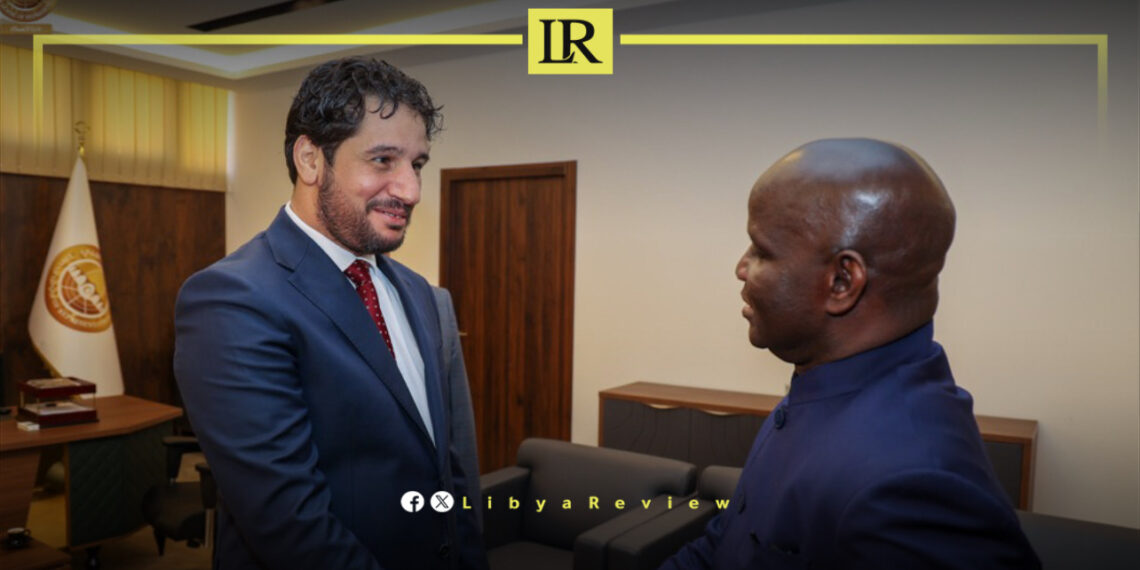The meeting, which also saw the presence of Abdullah Al-Masri Al-Fadhil, Chief of Staff of the Libyan House of Representatives, and Abdulhadi Al-Hwaij, Minister of Foreign Affairs and International Cooperation, aimed to deepen the friendship and cooperation between Libya and Guinea-Bissau.
At the outset, Sanou conveyed the greetings of the Guinea-Bissau President, emphasizing the importance of strengthening bilateral relations. The discussions focused on various strategies to enhance and develop ties to benefit both nations and their people.
The dialogue underscores Libya’s ongoing efforts to bolster international relationships and foster global cooperation, reflecting its commitment to playing a pivotal role on the international stage
Libya has been in chaos since a NATO-backed uprising toppled longtime leader Muammar Gaddafi in 2011. The county has for years been split between rival administrations.
Libya’s economy, heavily reliant on oil, has suffered due to the ongoing conflict. The instability has led to fluctuations in oil production and prices, impacting the global oil market and Libya’s economy.
The conflict has led to a significant humanitarian crisis in Libya, with thousands of people killed, and many more displaced. Migrants and refugees using Libya as a transit point to Europe have also faced dire conditions.
The planned elections for December 2021 were delayed due to disagreements over election laws and the eligibility of certain candidates. This delay has raised concerns about the feasibility of a peaceful political transition.
Despite the ceasefire, security remains a significant concern with sporadic fighting and the presence of mercenaries and foreign fighters. The unification of the military and the removal of foreign forces are crucial challenges.


